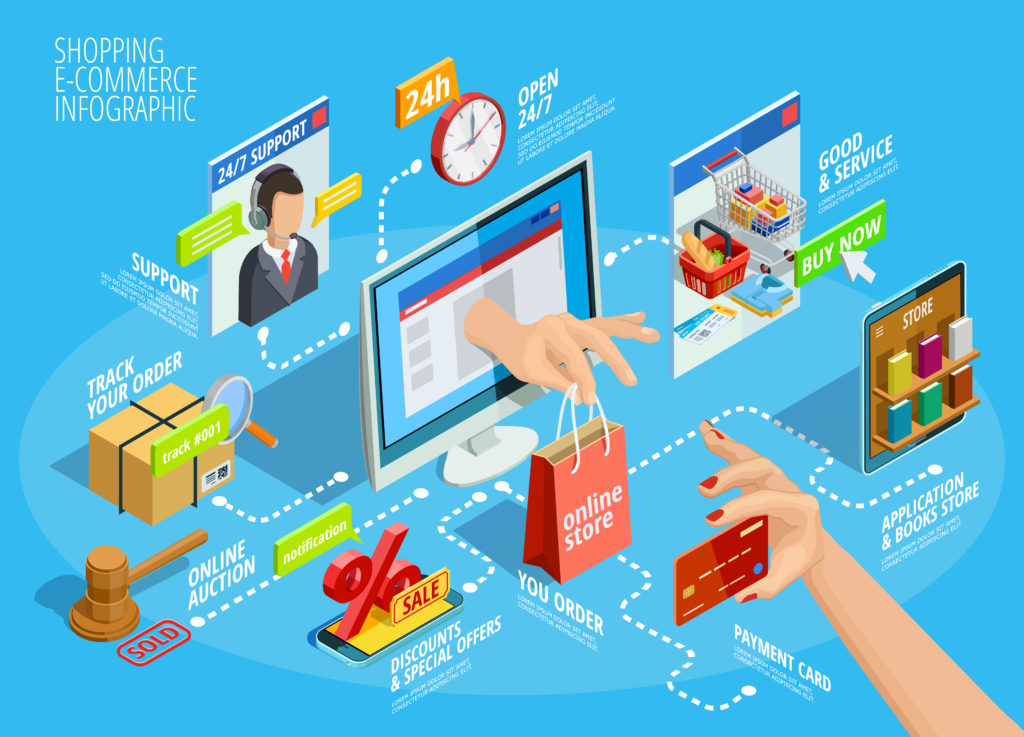Over the last decade, omnichannel retail has emerged as one of the most effective strategies for businesses fighting the tides of change brought about by the digital world. Contrary to popular belief, the advent of technology has not exactly spelt the doom for brick and mortar stores.
The omnichannel retail strategy provides customers with the choice of shopping across all channels, be it in physical or online stores, on smartphone apps or on social media. Customers then have the luxury of choosing the delivery of their purchase in the most convenient mode for them, be that through collection from a physical store or delivery to their homes.
Omnichannel retailing differs from the multi-channel approach by synchronising all platforms together, providing customers with a seamless shopping experience. This means a merchant’s offerings and prices would be the same regardless of whether a customer shops in a physical store, online store, smartphone app, or social media.
A 14-months study by Harvard Business Review involving 46,000 customers found that 73% of them used various channels during their shopping journey. The study further revealed that, out of this number, only 7% of customers identified themselves as online-only shoppers and 20% as physical stores-only shoppers.
The successful execution of the omnichannel retail strategy relies heavily on making use of best-in-class technologies. Customers shopping with omnichannel retailers expect a smooth and seamless experience in a highly competitive business environment as they flit between different channels. The onus then falls on retailers to provide services that measure up to the expectations of their customers.
The execution of the omnichannel retail strategy, however, has been one that is pockmarked with setbacks and difficulties. This is a result of the failure by businesses to undertake digital transformation and the decision to continue operating with legacy systems, leaving them at the mercy of their rivals who are equipped with technologies for the digital age such as cloud ERP, automation and big data.
Research by Econsultancy on omnichannel retailers in Indonesia revealed that 50% of the respondents operate on systems that are not able to provide data of customers across channels. Meanwhile 48% of the respondents said that their systems had poor data integration capabilities and that they were having to manually manage processes. Forty-five-percent of the respondents said the amount of data was too much for their systems to handle.

In an environment where customers switch between different channels frequently, it is only logical that they are going to leave businesses with huge tranches of data behind. However, research by Neustar shows that these data become outdated within two years. Citing figures from the United States, the research points out to the fact that 37% of people in the US change their contact details within a year. Disparate systems running on legacy solutions render these valuable data obsolete.
The lack of consolidated data in real-time can be highly damaging to omnichannel retailers who cannot afford to drop the ball in a highly competitive market.
Below we look at how undertaking digital transformation through the migration to the cloud and using solutions such as cloud ERP can help omnichannel retailers reap the full benefits that their strategy richly deserves.
360-degree, real-time view of data
The days when entities within a business operated in silos are over. For an omnichannel retail strategy to succeed, everyone who is a part of the business has to be on the same wavelength.
As consumers flit between the channels whenever they wish to on the devices they prefer, it is of utmost importance for omnichannel retailers to have a consolidated view of all the business processes.
Cloud ERP solutions allow omnichannel retailers to have a complete view of their customers in real-time, allowing them to take concerted action swiftly to respond to evolving customer needs.
Scalability
Running an omnichannel retail means being able to accommodate evolving business needs. Legacy systems are often blighted by its rigid architecture which does not allow systems to be customised or functions to be added.
Omnichannel retailers who run on legacy ERP systems often end up forking out huge sums in expenditures trying to integrate new features into their present system. The problem with this method is that the scope for growth on legacy systems is finite. After a few iterations, chances are you would not be able to add additional functionalities to your legacy system, ending any chance of further foray into the omnichannel market.
Cloud ERP systems on the other hand, by the virtue of their architecture, are made for operations in the digital business world. Their nimble architectures enable you to constantly scale and add features as and when you need them on a software as a service (SaaS) basis.
Data integration
Customers who shop on E-commerce platforms fill up a lot of their personal details as they register before making their purchase. The flow of data becomes even heavier in an omnichannel environment as customer preferences are subject to change.
To deliver top notch service to customers, omnichannel retailers need to have all these data consolidated and delivered on a single platform.
Through migration to cloud, and by using solutions such as a cloud ERP system, omnichannel retailers are presented with easy low-code/no-code data integration solutions that provide advanced reporting capabilities.
Oracle NetSuite for Retail/E-Commerce
Whether you are a multi-channel, brand, or business model retailer that sells across multiple regions and countries, Oracle NetSuite for Retail/e-Commerce allows you to manage your whole business unified by a single cloud system, everywhere and anytime.


